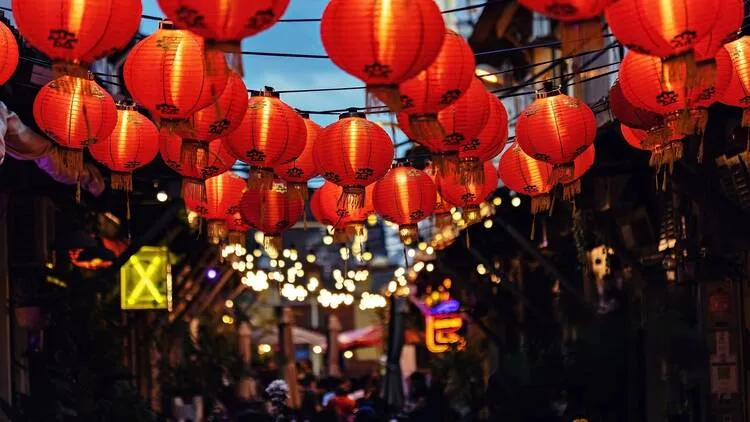Chinese New Year is a fifteen-day celebration observed annually in China and Chinese communities worldwide. According to Western calendars, the event starts on the new moon, which falls between January 21 and February 20. The celebrations continue until the next full moon.
In many Asian nations and the Asian diaspora, the Lunar New Year is one of the most significant holidays.
Because the celebration dates coincide with the phases of the moon, the occasion is frequently referred to as the Lunar New Year. People in China have had seven days off from work over the Chinese New Year since the mid-1990s.
Spring Festival, a name commonly used to refer to the Chinese New Year in general, has been assigned to this week of leisure.
There are several legends surrounding the origins of the Chinese New Year. According to a tale, at the start of every new year thousands of years ago, a monster by the name of Nian (“Year”) would attack communities. Red, flashing lights, and loud noises were utilized to scare the monster away because those are the things that frighten it. Firecrackers, fireworks, and red clothing and decorations are therefore common elements of celebrations to bid farewell to the old year and welcome the good fortune and prosperity of the new one.
Money is handed to young people in vibrant red envelopes. Chinese New Year is also a time to celebrate with food and family get-togethers. Numerous customs during this season pay tribute to departed family members.
A dragon light show during a Lantern Festival to celebrate the conclusion of the Chinese New Year.
See why the years 2008 and 2020 were deemed to be the year of the rat?
Cleaning your house thoroughly to get rid of any bad luck that may still be there is one of the many customs associated with Chinese New Year. On specific days, some people cook and savor special meals during the celebrations.
The Lantern Festival, which takes place at the end of the Chinese New Year, is a celebration where participants carry or hang luminous lanterns in a nightly procession. As the dragon is regarded as a lucky charm in Chinese culture, festival festivities often feature a dragon dance. Several dancers carry a long, colorful dragon through the streets during this parade.

